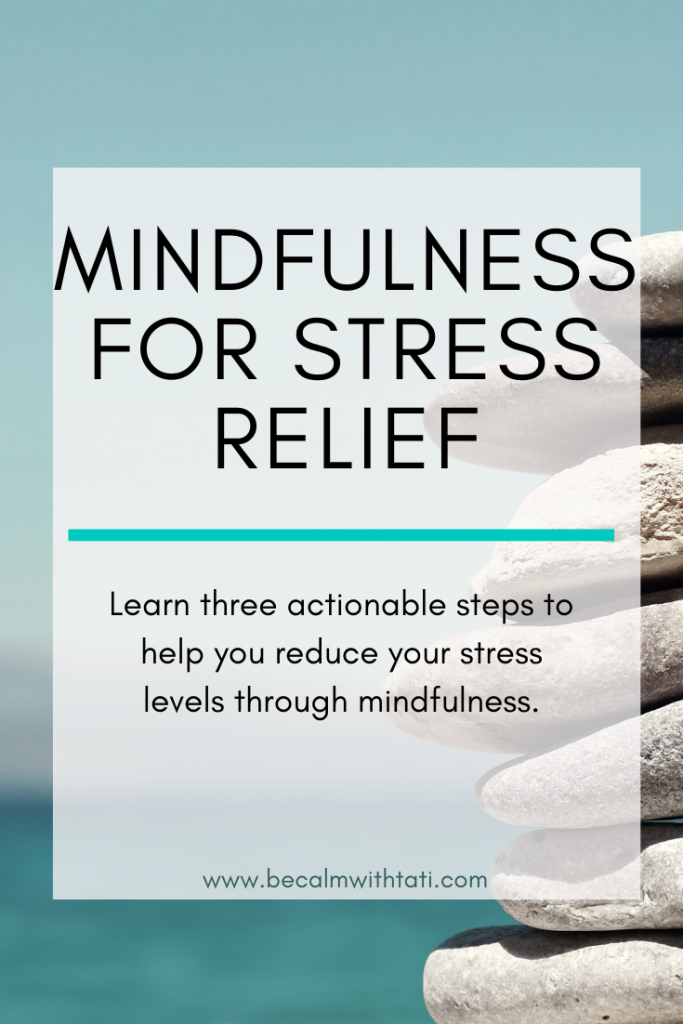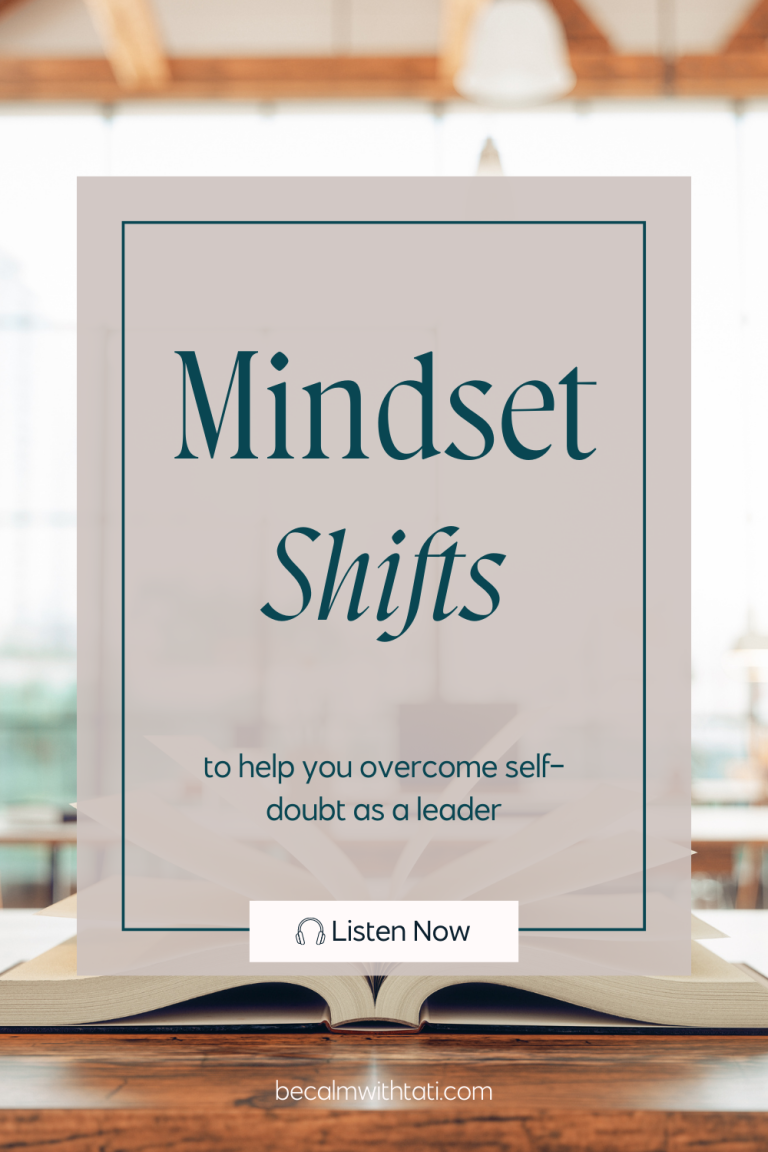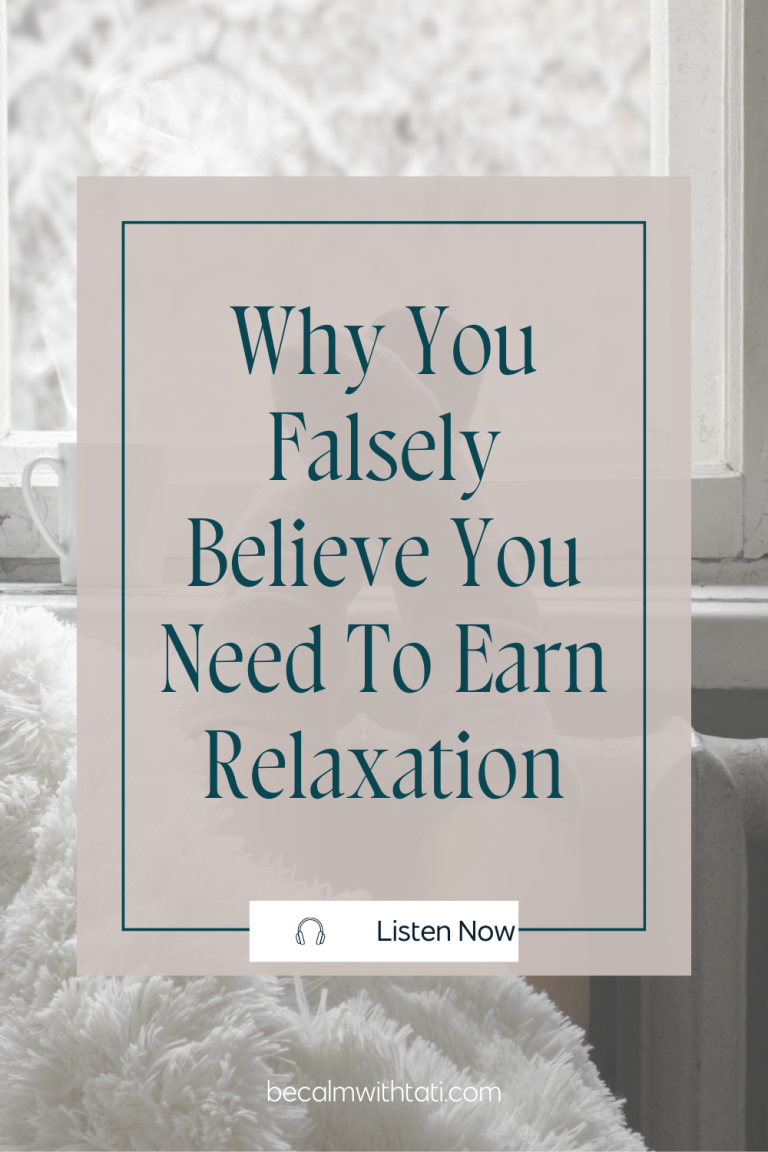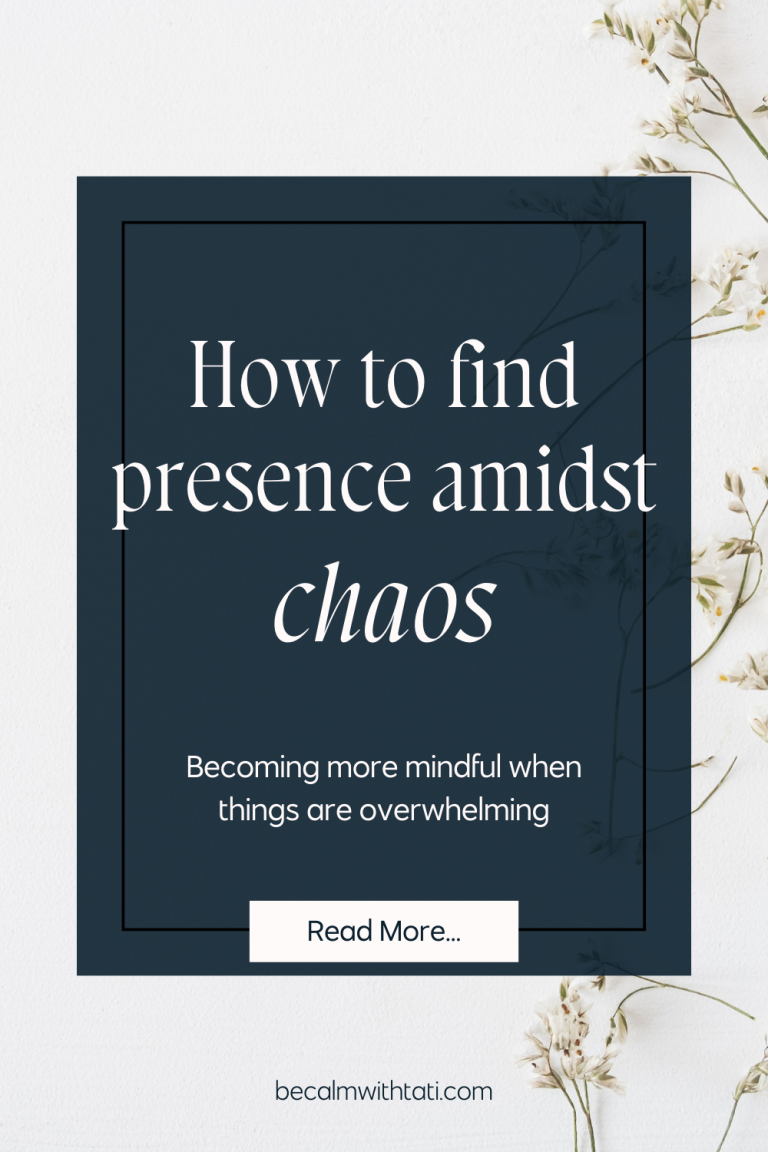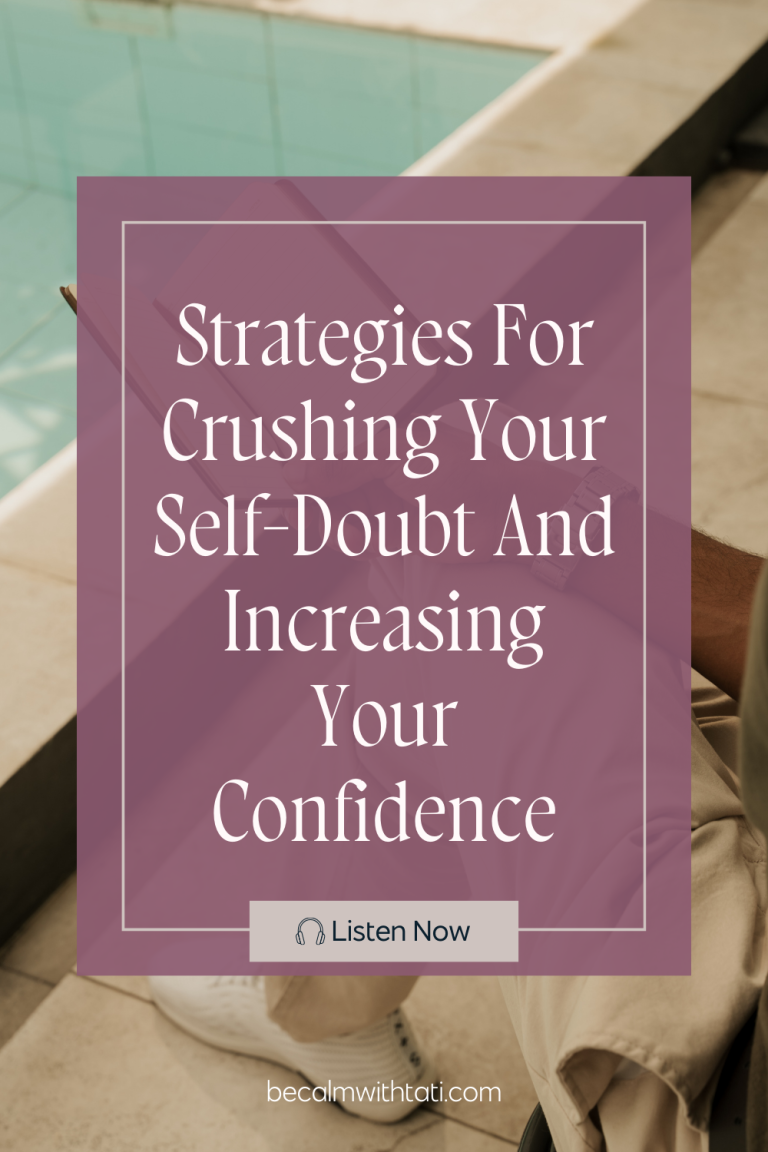Learn How To Reduce Your Stress Levels
Mindfulness- the word is ever so present nowadays. What does it truly mean? And how can you apply the principles of mindfulness for stress relief? The dictionary defines mindfulness as “the quality or state of being conscious or aware of something.”
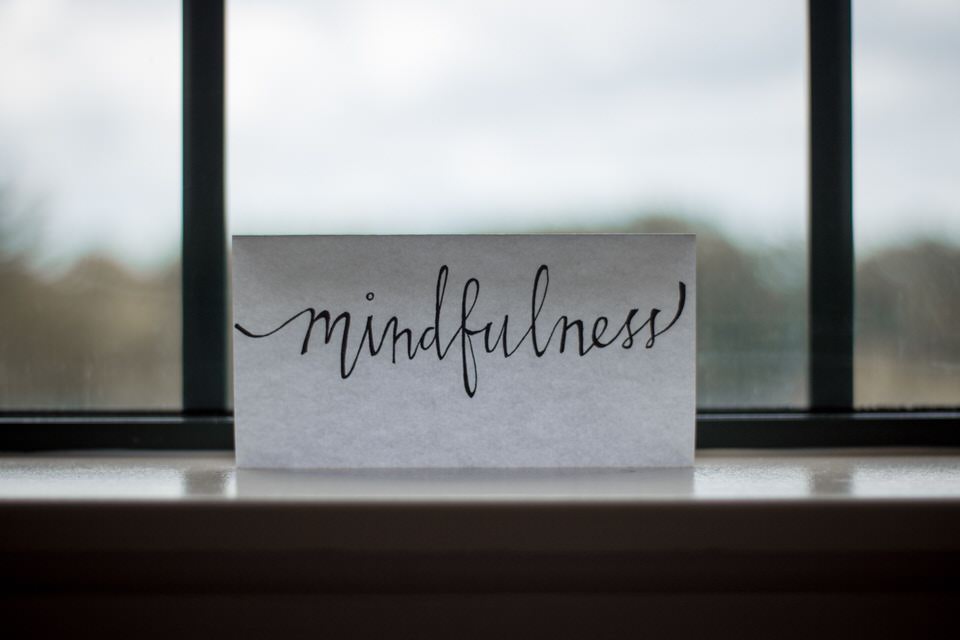
Mindfulness may mean something different to different people. To me, mindfulness is having awareness in the present moment. It is actually being where you are, not thinking about what just happened or planning for what you want to do.
Mindfulness is HARD. In fact, our brains love to not be mindful. Our brains love to think, and over think, and stress out, and catastrophize, and plan, and obsess over the past. The problem is that these types of thinking can really have a negative influence on the way we feel.
How Does Stress Affect Your Body?
Our mind and body are not separate. Our thoughts influence our bodies.
This may seem obvious. But think about it this way:
The thoughts that you have can influence what your body does. For example: you feel stressed and you are worrying about a deadline coming up. What might happen in your body? Maybe your upper back will tense up, your brow will furrow and become tight, you will clench your jaw, your breathing will become more shallow, and your adrenal glands will create more of the stress hormone cortisol
All of this happens just from a thought. What’s more- maybe you are having this thought while standing in line at the grocery store with your significant other. You aren’t even at work- it’s the weekend! Yet you are having physical shifts in your body’s state as a result of not being in the present moment.
This happens over and over again in life. This may happen so often that you aren’t even entirely aware of it. Yet your body and your mood are paying for it as a result.

Increase Your Awareness
So how do you take control over what your mind, body, and emotions are doing, instead of allowing them to control you?
Ultimately, by continuing to following the same patterns you have been, you are relinquishing control. I’m sure you have experienced moments where you were driving and did not remember how you got somewhere, or you were at a lecture or a meeting and you missed half of what was being said. These are moments when you are not being mindful and present. This happens because your mind is so caught up in thinking about another moment- the past or the future- that you are not present in your body.
This happens to everybody- it is nearly impossible to be fully present in every moment. And it’s okay not to be, but when you are living your entire life on autopilot with zero awareness, then it becomes a problem.
Do you want to live your life stuck in the past or obsessing about the future? The only moment that we truly have is right now. Studies have shown* that people whose focus is currently in the present moment are happier than people who are thinking about the past or future
If you have read this far, then hopefully you understand how important it is to use mindfulness for stress relief. But how can this be achieved?
How You Can Start Becoming More Mindful
Jon Kabat-Zinn defines mindfulness as:
“paying attention in a particular way; on purpose, in the present moment, and non-judgmentally.”
You do not have to meditate for hours on end to start becoming more mindful.
The best way you will get there is by taking small, achievable steps so that you do not get discouraged. But even if you do feel discouraged- this is a part of the process! Being mindful is not completely clearing your thoughts. Being more mindful is just noticing the thoughts you do have so that they do not take a hold over you without your knowledge.
Step 1:
Be kind to yourself.
If you are feeling stressed out, odds are it may be due to pressures you or somebody else are putting upon you. You cannot control other people and their expectations. Therefore, it is essential that you be kind to yourself. You can only do so much, and you cannot change the past. Practice acceptance of the things that you cannot change, and use any errors as a learning experience.
Step 2:
Notice how you are feeling.
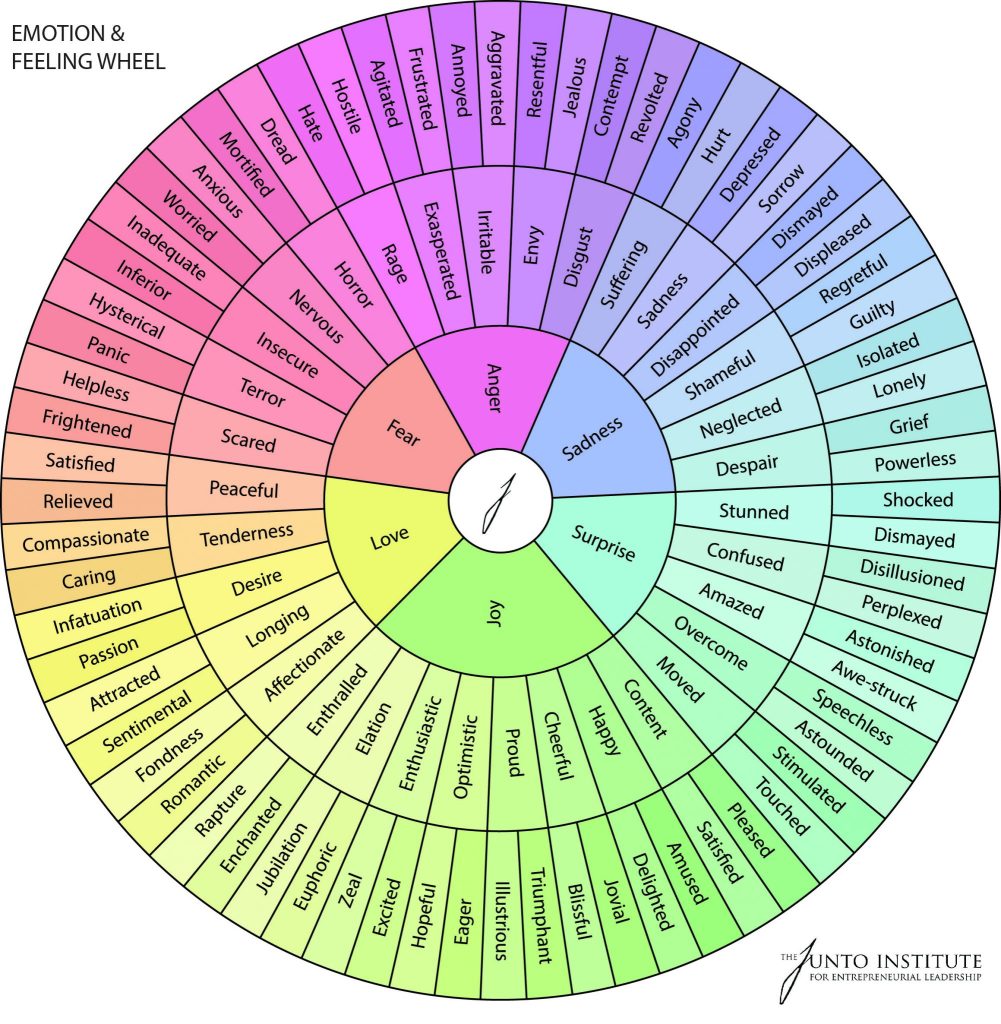
Pay attention to the types of emotions you currently have. It’s highly probable that you are experiencing more than one at a time. Maybe they are even conflicting emotions. Notice and label them.
Something as simple as labeling your emotions can help you feel better. This is because you are not defining yourself as this emotion- you are defining it just as a temporary experience.
In addition to emotions, you can also choose to pay attention to physical sensations and label those. Maybe you are hiking your shoulders all the way up to your ears out of stress and you aren’t even aware of it!
Example: I am currently feeling rushed, stressed, and my shoulders are tense.
Tip: Don’t try to actively change your experience. This will only cause more resistance and create more of that emotion/sensation. Just focus on noticing and being aware of these emotions and sensations
Step 3:
Pay attention to your thoughts.
Are your thoughts a part of reality? No, seriously- are they facts? This is when it is important to be objective and pay attention to what you really do know.
Ask yourself these questions:
- Is this thought realistic?
- What is the evidence for and against this idea?
- Might this belief be a habit, rather than something based on facts?
- How long have I been thinking this?
- What possible misinterpretations might I be making?
- Am I thinking in all-or-none/black-and-white terms?
o Is there any room for “grey” with this thought? - Am I using words or phrases that are extreme or exaggerated (i.e., always, forever, never, need, should, must, can’t, ever time, etc.)?
- Is extreme and/or exaggerated language implied in this thought?
- In what way might I be focusing only on one aspect of the event (possibly negative)?
- Who has given me this message before?
o Other people in my life?
o A younger version of myself?
o Is that person a reliable source of information when it comes to this thought? - What are the odds that this thought is true? Am I overestimating the likelihood that this thought is true? Am I overestimating the odds that something bad will happen?
- Are my judgments based on feelings rather than facts?
- In what way might I be focused on irrelevant factors?
- What are the costs and benefits of this thought?
o How might I arrive at similar benefits with different thoughts?
This form of questioning is known as Socratic Questioning*, from the Greek philosopher Socrates, and can be very helpful in challenging unrealistic thoughts.

Challenge Your Thoughts
I want you to try this out for yourself. Think of a scenario in which you felt anxious, depressed, sad, ridiculed- any negative scenario that caused you to feel bad. Then, I want you to ask yourself those questions based on the thoughts you had at that time.
For example: I made a huge mistake at work and I am going to get fired.
Is this thought realistic? Well, what does it take to get fired? I know that you need to get written up before you are fired, and I did not put anybody in harm’s way, so maybe it is not very realistic.
What is the evidence for and against this idea? My manager has never threatened to fire me before. I don’t know anybody else that I work with who has been fired, and otherwise I am completing my work responsibilities.
You can continue down the line of questioning until you feel better, or until you feel you have thoroughly gone through the facts of the situation. This is a method taken from Cognitive Behavioral Therapy.
Conclusion
Mindfulness for stress relief can be challenging. If you become discouraged, that’s okay! It’s part of the process.
If you are new to mindfulness, I hope you have learned the importance of being kind to yourself, and the power of being aware of your emotions, thoughts, and sensations.
It is difficult to have awareness of all of these all the time. The next time you catch yourself being aware of the present moment, choose one of these to practice and see if you notice a difference.
Let me know in the comments below if you have any helpful mindfulness tips, or any struggles with being mindful during stressful moments.
Good luck!
*Sources:
Harvard
The Junto Institute
Wikipedia
